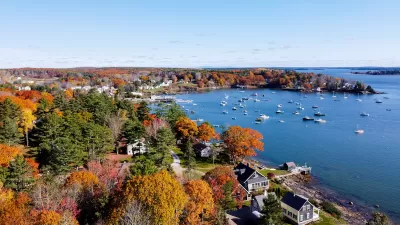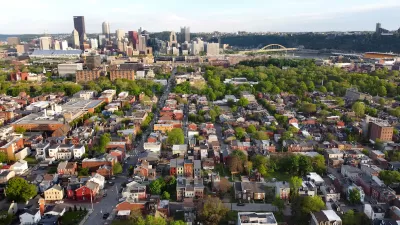Emily Badger delivers a lesson in how to navigate the linguistic minefield awaiting anyone who endeavors to talk about cities with those who don't live in one.
With seemingly innocuous, but loaded, terms like "urban", "smart growth", or "transit-oriented development" posing a potential minefield of antagonism towards ignorant planners, Badger seeks advice from those in the field as to what certain terms connote to those outside of cities, and strategies for workarounds.
The first lesson, delivered by Chuck Marohn, the executive director of the non-profit Strong Towns, is to recognize the danger inherent in using certain terms with condescending overtones such as "smart growth" or "auto-oriented". "That antagonistic language keeps us from having this broader dialogue," Marohn says. "It allows us to remain polarized round issues that at their central core are universal. We all want to live in places that we like. We all want to feel safe. We all want access to food, shelter, recreation, entertainment. These are things that are essentially universal."
The next lesson is to find a common language to address what are often common concerns between small town and urban residents. To Mahon this common language is "the language of economics, of debt and prosperity and gas price."
According to Badger, "It's not that cities need 'smart growth' and rural towns are destined to die in the mass exodus from dumb farms to sardine-like urban apartments. Rather, everyone needs to figure out how to rebuild communities that aren't caught in the trap of endlessly expanding development – not because this pattern is morally or environmentally problematic, but because it's financially so."
FULL STORY: How To Talk About Cities Without Ticking Off Folks Who Don't Live There

Maui's Vacation Rental Debate Turns Ugly
Verbal attacks, misinformation campaigns and fistfights plague a high-stakes debate to convert thousands of vacation rentals into long-term housing.

Planetizen Federal Action Tracker
A weekly monitor of how Trump’s orders and actions are impacting planners and planning in America.

In Urban Planning, AI Prompting Could be the New Design Thinking
Creativity has long been key to great urban design. What if we see AI as our new creative partner?

Cal Fire Chatbot Fails to Answer Basic Questions
An AI chatbot designed to provide information about wildfires can’t answer questions about evacuation orders, among other problems.

What Happens if Trump Kills Section 8?
The Trump admin aims to slash federal rental aid by nearly half and shift distribution to states. Experts warn this could spike homelessness and destabilize communities nationwide.

Sean Duffy Targets Rainbow Crosswalks in Road Safety Efforts
Despite evidence that colorful crosswalks actually improve intersection safety — and the lack of almost any crosswalks at all on the nation’s most dangerous arterial roads — U.S. Transportation Secretary Duffy is calling on states to remove them.
Urban Design for Planners 1: Software Tools
This six-course series explores essential urban design concepts using open source software and equips planners with the tools they need to participate fully in the urban design process.
Planning for Universal Design
Learn the tools for implementing Universal Design in planning regulations.
Appalachian Highlands Housing Partners
Gallatin County Department of Planning & Community Development
Heyer Gruel & Associates PA
Mpact (founded as Rail~Volution)
City of Camden Redevelopment Agency
City of Astoria
City of Portland
City of Laramie





























